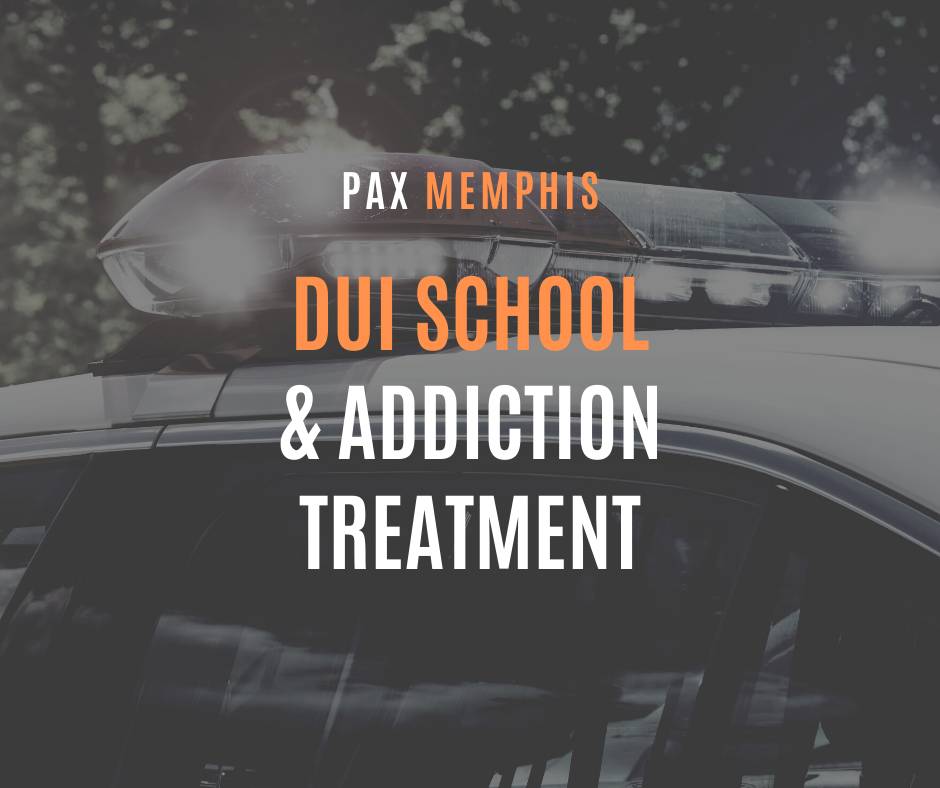DUI School & Addiction Treatment
Many people who have been recently arrested and charged with a DUI often feel embarrassed and fearful of others finding out about their extenuating circumstances. Hopefully, if you have been charged with a DUI in Tennessee, you will realize how much your experience reveals about the state of your life and addiction. Thankfully, the state of Tennessee offers an early intervention program through a licensed DUI School facility. Programs such as this grant you the opportunity to turn your life around and seek recovery before it’s too late.
What is a DUI?
DUI is an acronym for driving under the influence and generally refers to driving under the influence of alcohol. However, a DUI can also apply to driving under the influence of other substances as well. Blood alcohol concentration (BAC) is used to determine if an individual is driving under the influence of alcohol. In the United States, a BAS of .01 indicates that there are .01 grams of alcohol for every 10th of a liter of blood in an individual’s system.
Since alcohol affects reaction times, vision, and coordination, there is a legal limit in which an individual is allowed to operate a motor vehicle. Law enforcement officers usually use a breathalyzer test that indicates BAC (breath alcohol concentration) which is used to determine an individual’s BAC. The standard in all 50 states allows for an individual to be charged with a DUI for a BAC of .08 or higher. However, some people with lower BAC levels may be charged, depending on other tests utilized to determine levels of impairment, such as a blood test.
What Happens if You Get a DUI?
Someone convicted of a DUI or DWI (driving while intoxicated) is susceptible to arrest and charges that include a number of different penalties. Factors that contribute to the legal penalties of a DUI or DWI conviction are the number of prior offenses, BAC, which state the offense was committed in, judge and prosecutor, prior criminal offenses, and many other variables. Legal consequences and potential penalties for a DUI conviction may include:
- Suspension or revocation of an individual’s driver’s license (mandatory in some states)
- Fines and/or probation
- Installation of an ignition interlock device installed on the vehicle of the offender
- Documentation that an individual has completed a substance abuse rehabilitation program
- Jail time
- Community service
- Mandatory court-ordered participation in substance use disorder treatment
- Permanent conviction listing on the driving and criminal record of the offender
Ramifications outside of the judicial system typically include:
- Financial loss due to attorney and legal fees
- Loss of job
- Inability to acquire certain occupational professions
- Family dysfunction
- Higher car insurance rates
- DUI Classes, Rehabilitation, and Diversion Programs
According to the National Institute on Alcohol Abuse and Alcoholism 14.4 million adults (18 and older) were reported to have an alcohol use disorder (AUD). Due to the staggering numbers of individuals struggling with alcoholism, the legal system often offers the opportunity for an offender to enter an alcohol rehabilitation program or attend DUI classes in lieu of being incarcerated. These specific opportunities vary depending on the jurisdiction, criminal history (if any), and the specifics of the case.
DUI School in Memphis, Tennessee
States like Tennesse may offer the option for the offender to attend DUI School. This intervention program provides screening, assessment, and education for individuals convicted of driving under the influence of alcohol and/or other drugs. Tennessee requires licensed DUI Schools to provide a minimum of twelve (12) hours of instruction to each student. Any offender who does not complete 12 hours of the curriculum has not completed the requirements granted by the state of Tennessee. The curriculum will guide students through the process of self-evaluation and reflection while helping to prevent future substance abuse problems from occurring.
Alcohol Rehab
The goal of participating in an alcohol rehab program in Memphis, Tennessee is to help an individual identify issues that led to his/her alcohol abuse, learn coping skills, develop healthy life skills, and create a long-term relapse prevention program. Depending on the jurisdiction, case, and criminal history of a DUI offender, individuals who enroll themselves into an inpatient treatment program may be required to;
- Attend daily or weekly individual/group therapy sessions
- Subject themselves to random drug and alcohol screening
- Pay for random testing
- Complete community service
- Pay for alcohol rehab
- Attend a certain number of Alcoholics Anonymous (AA) groups on a weekly basis
- Provide proof of attendance in 12-Step meetings
- Provide a letter of completion for participation in a substance abuse treatment program
Due to the chronic relapsing components of the disease of addiction, many judges prefer to try and help the individual with his or her problem as opposed to imprisoning them. Oftentimes, many individuals are repeat offenders. Therefore, the legal system often recognizes the need for rehabilitation overcriminalization for many DUI offenders. The judge may offer a pre-trial diversion plan by way of allowing an individual to complete a substance abuse rehabilitation program before the individual will be prosecuted.
It is always beneficial for anyone convicted of a DUI to seek help from a professional drug or alcohol recovery program prior to their trial in order to display their dedication to addressing and preventing further issues. If you or your loved one has been charged with a DUI or DWI and want to know more about finding a DUI school and treatment program in Tennessee that addresses and meets the specifications of the judicial system, call Pax Memphis today!
